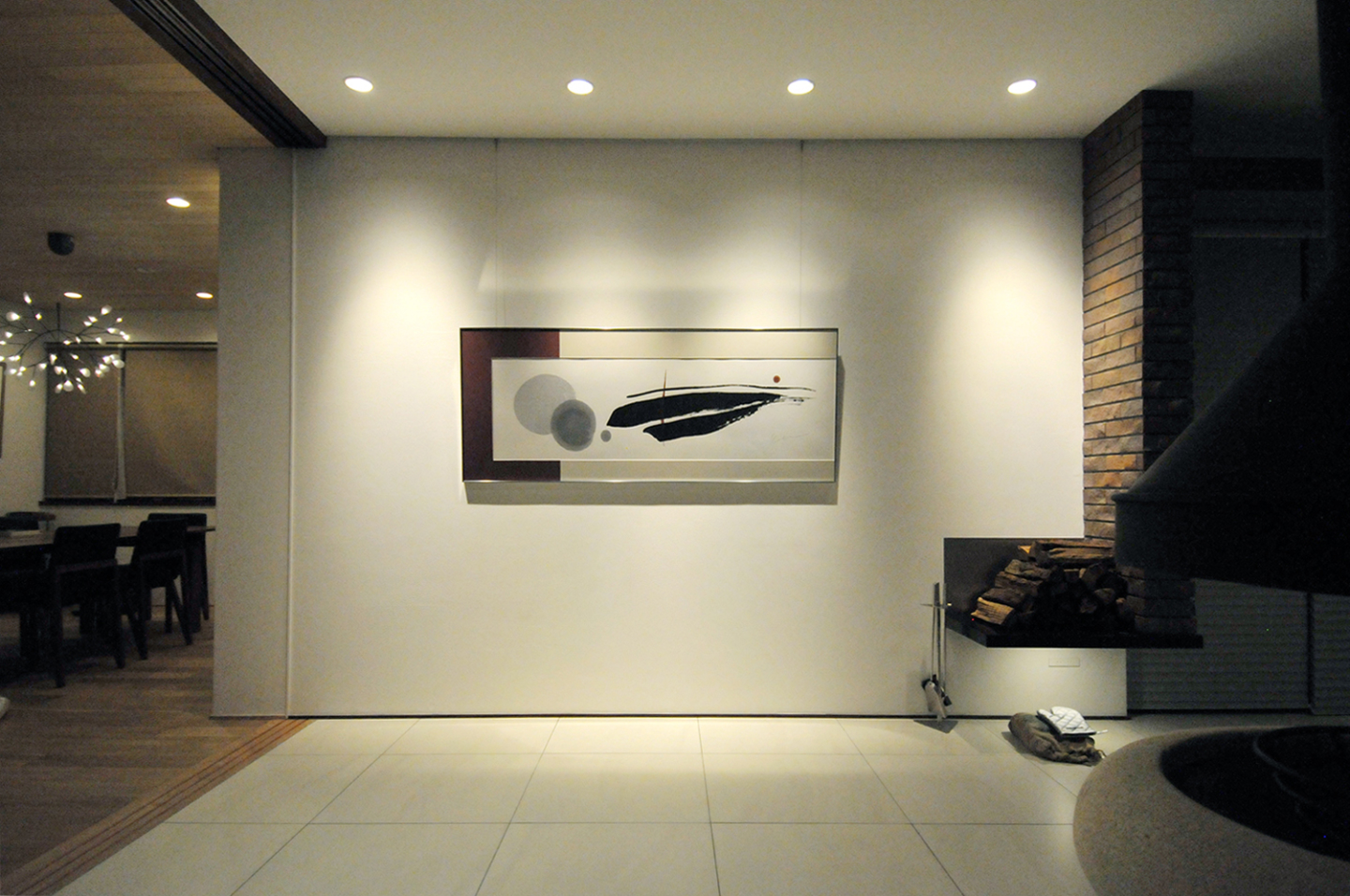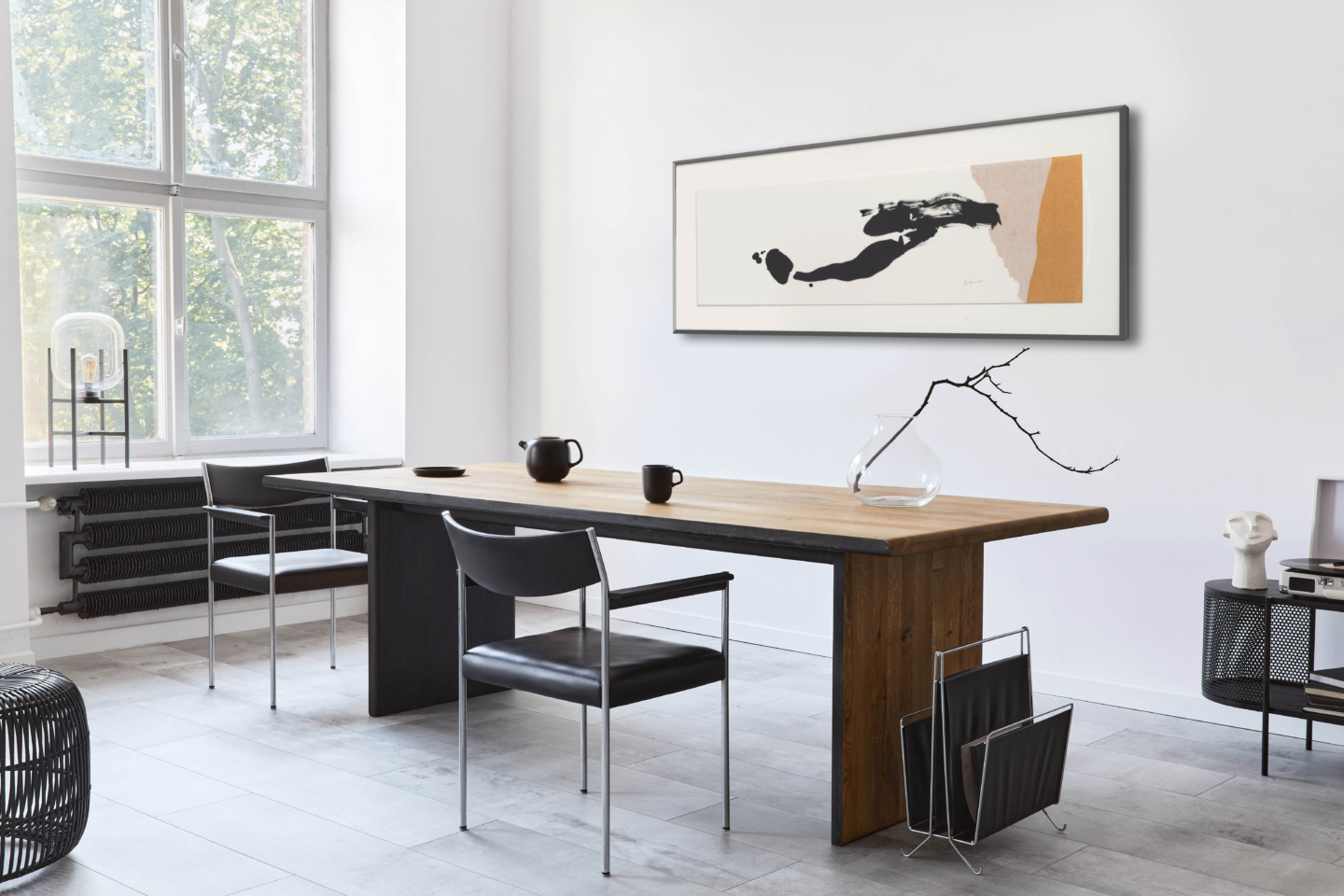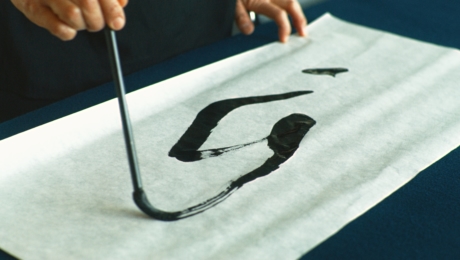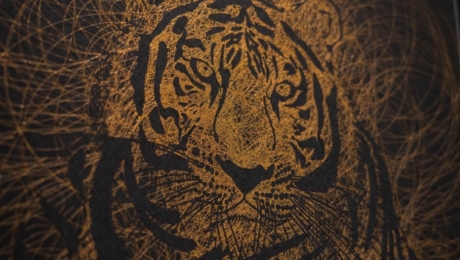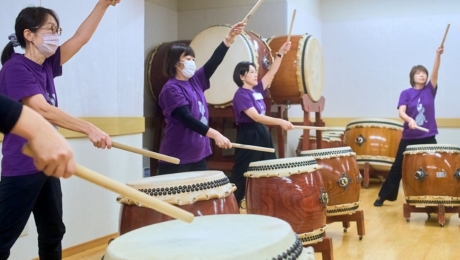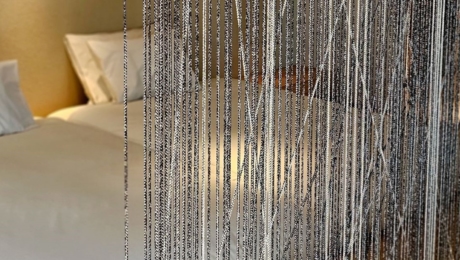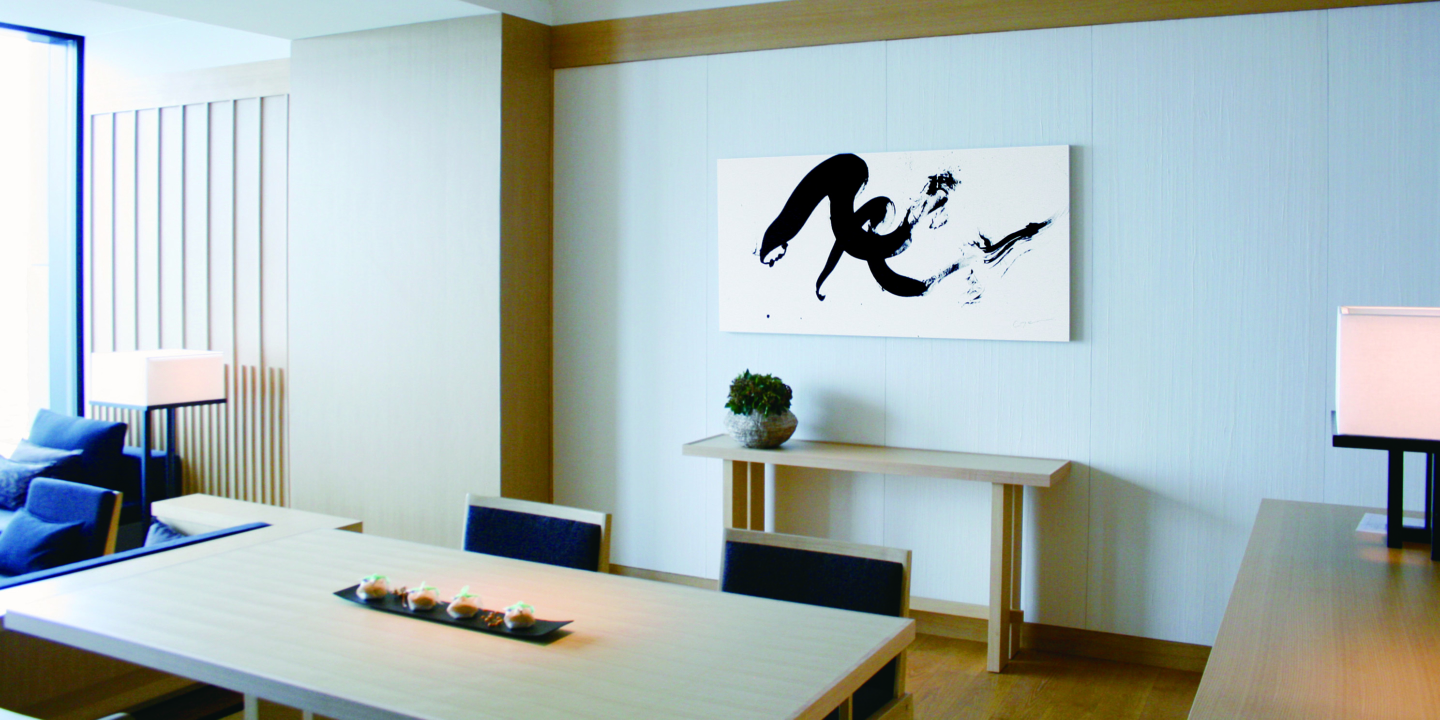
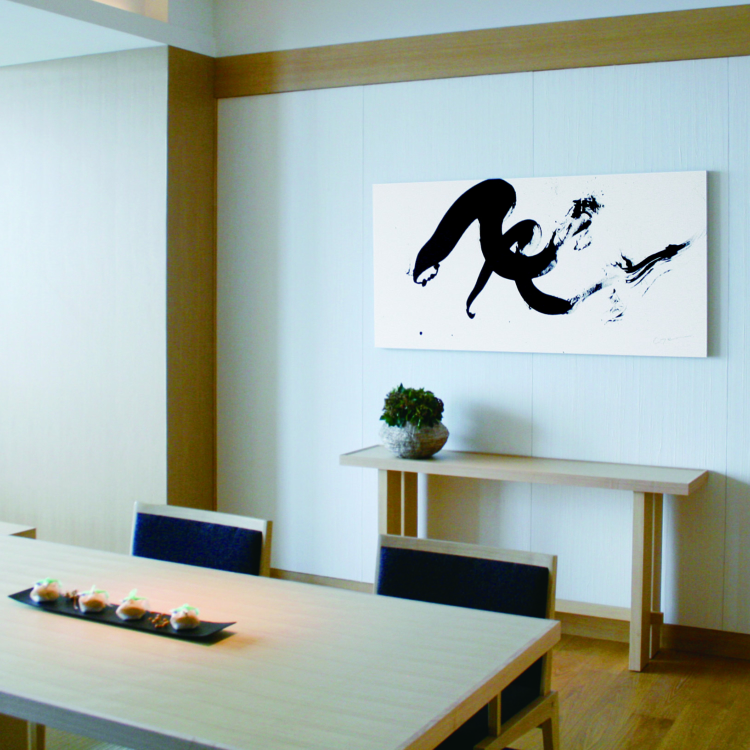
The appeal of calligraphy as interior art brought about by blank spaces
2024.03.22
LIFE“Why don’t Japanese people decorate their rooms with Japanese things?”
Ms.Takahashi, who is manager at Carré MOJI, and Ms.Yoshino, who is store manager at Carré MOJI, say that this question was the impetus for the founding of Carré MOJI. When an American friend of the founder, Fumitaka Ueno, was stationed in Japan, he and Ueno searched all over the country for calligraphy to decorate his room, but found only a few old-fashioned hanging scrolls and ink seki, nothing he wanted to display in his room. Having himself an avid calligrapher, He was struck by the idea of combining traditional calligraphy with a modern sensibility to create calligraphy as interior art that fits into modern spaces, and in 2002 he launched Carré MOJI
The most important elements for us are the deep calligraphic lines that come from years of study and a high level of design sensitivity,” says Yoshino. It is difficult to find a calligrapher who can be considered an artist with both of these qualities,” says Yoshino. Since the company was founded, we have continued to search for calligraphers, and in the past 20 years, we have found 13 calligraphers. All of them understand our concept of creating interior decorations that can be enjoyed over a long period of time, and that place more importance on the emotional satisfaction of the person displaying the work than on the prominence of the work. What is important in realizing this concept is “blank space,” which is also a traditional Japanese aesthetic. By maximizing the use of blank spaces, beautiful scenes and landscapes will expand in the minds of those who view the works. It is our hope that the busy modern person will be able to create a blank space in his or her mind, and that the living space will be filled with comfort.
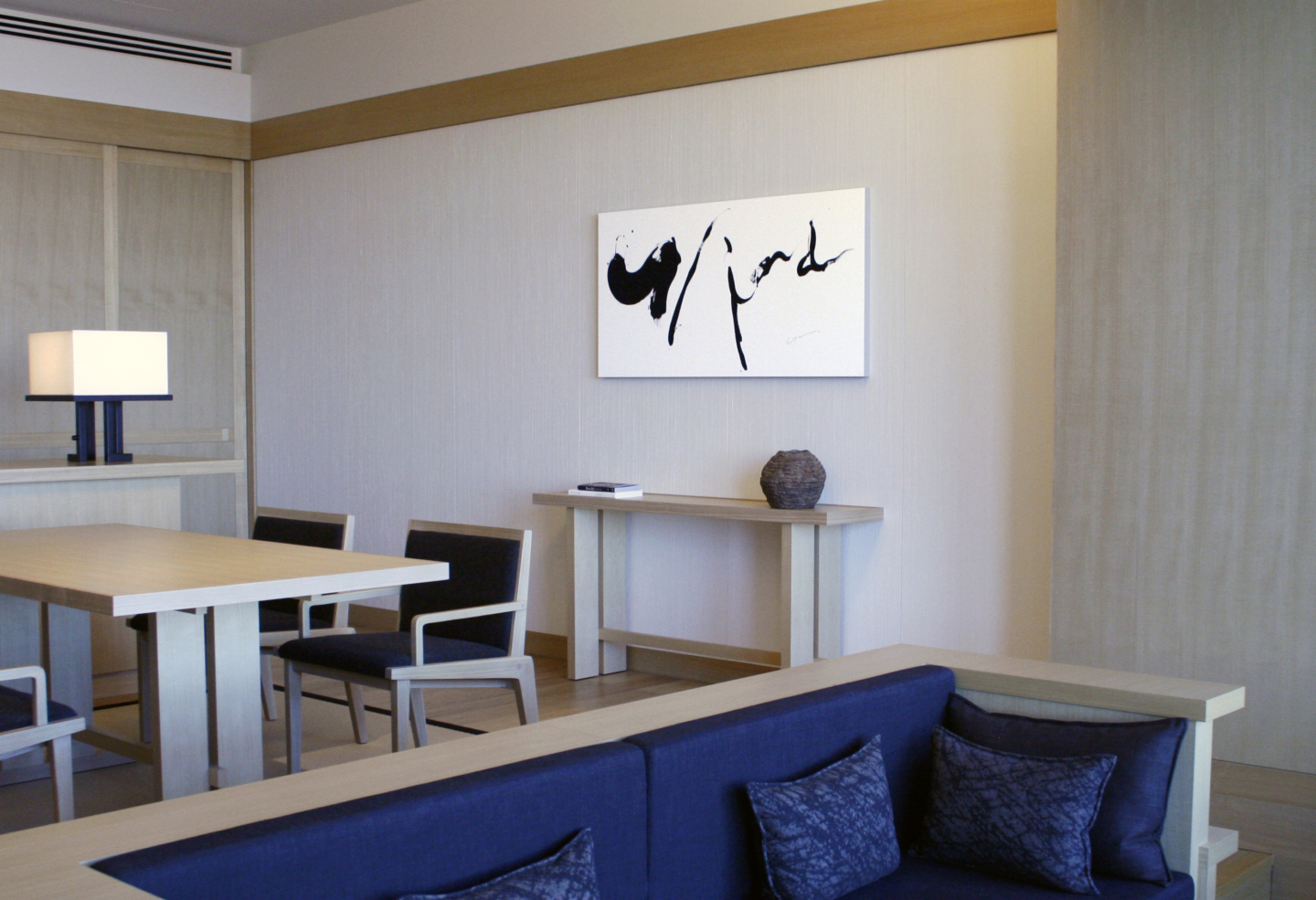
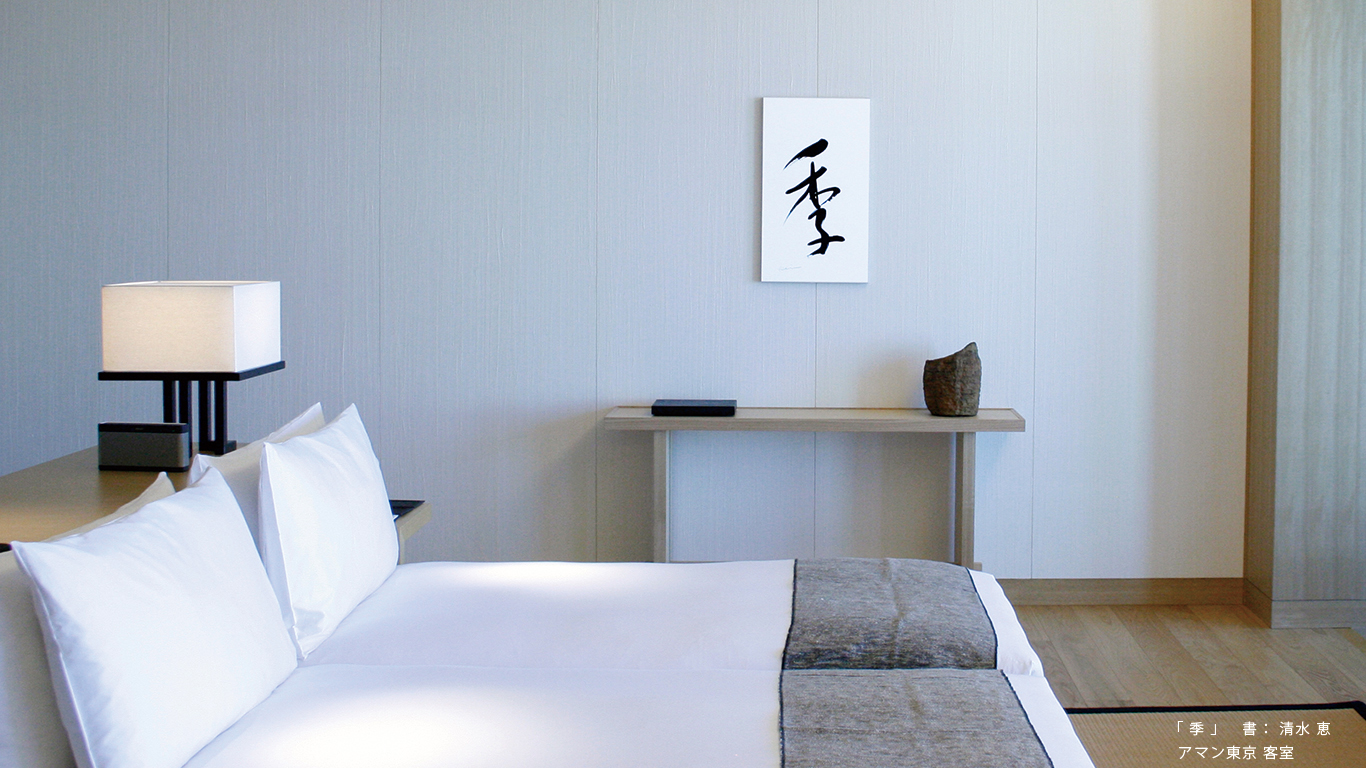
As the activities of the callemosi expand, one service that is gaining support is a coordination service that proposes calligraphic works suited to the space. In most cases, these are custom-made, created from scratch based on interviews with hotels, restaurants, corporations, and other clients. For example, when Aman Tokyo asked us to create a work of art suitable for entertaining guests in a sophisticated space that blends harmony, nature, and modernity, we handled everything from the conception of the characters to the delivery of the work.
We also place great importance on the framing design so that the artwork comes to life. The guest rooms at Aman Tokyo were simple spaces covered with Japanese paper wallpaper, so we dared to leave the artwork bare and paneled,” says Takahashi. The works have been well received by guests, and many have asked to display them at home as well. We are happy when we receive comments from guests, both in Japan and overseas, saying, “I was looking for a work of art that has a Japanese taste but also fits in a modern space! It makes me happy to hear people, both in Japan and overseas, say, “I was looking for a piece like that!
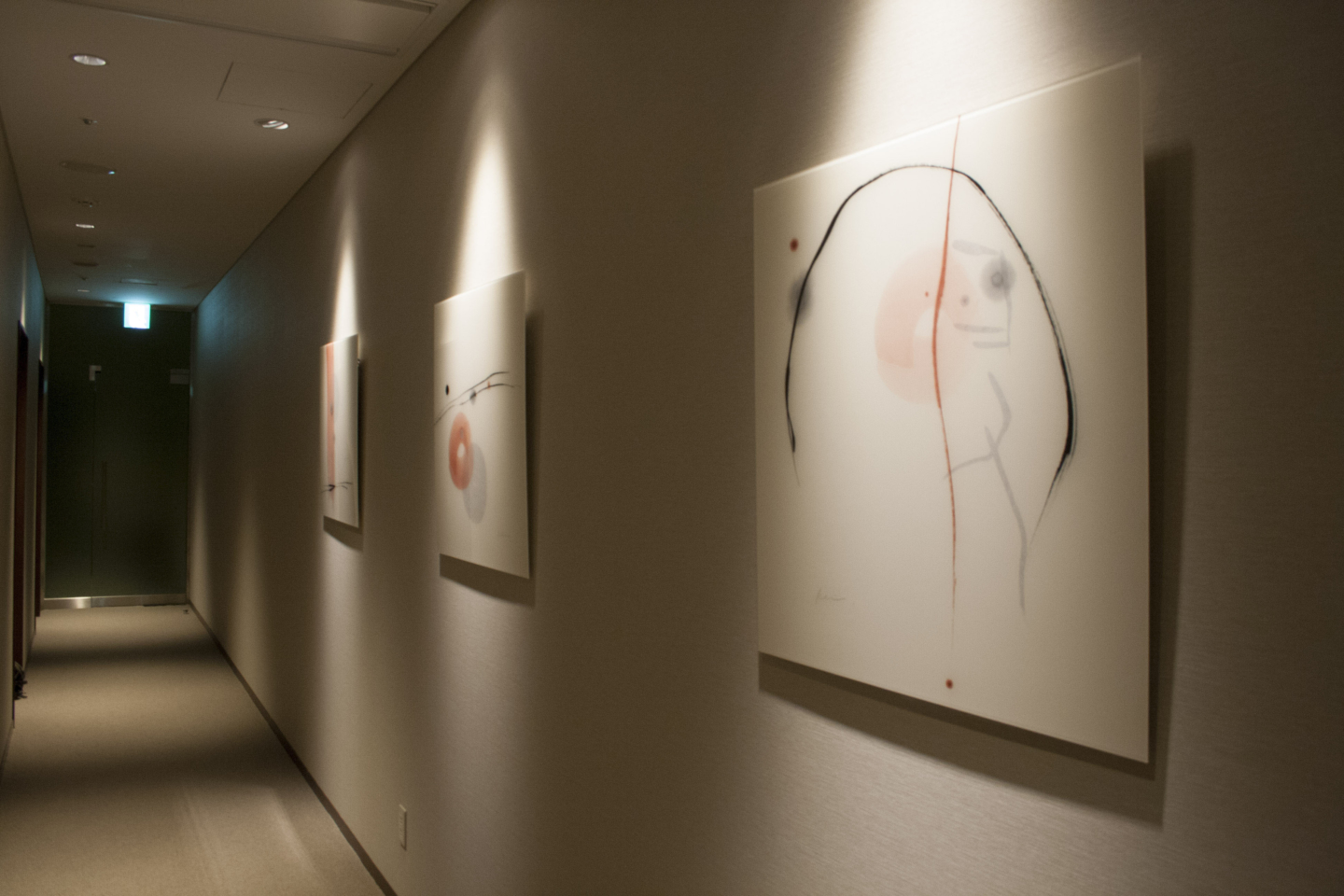
More than 20 years after its founding, calligraphy art is increasingly seen in commercial spaces.
I feel that we have become a pioneer in this field, but at the same time, I feel that the awareness of the need to display calligraphy in individual living spaces has not yet spread. We will continue to promote our goal from the beginning of the company, which is to make calligraphy the standard interior art in the world, and to have many people feel the comfort of a space with an expansive ink landscape.
